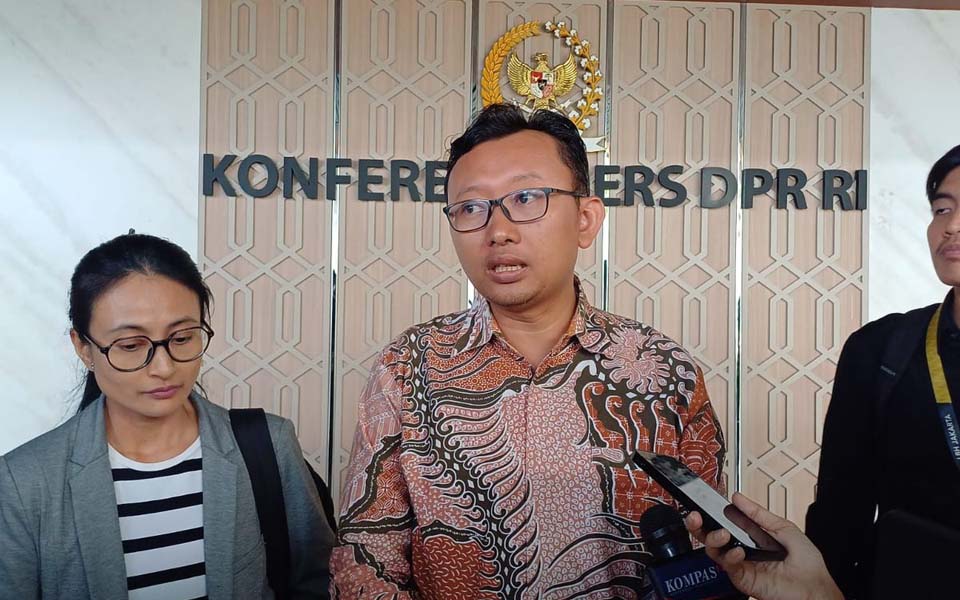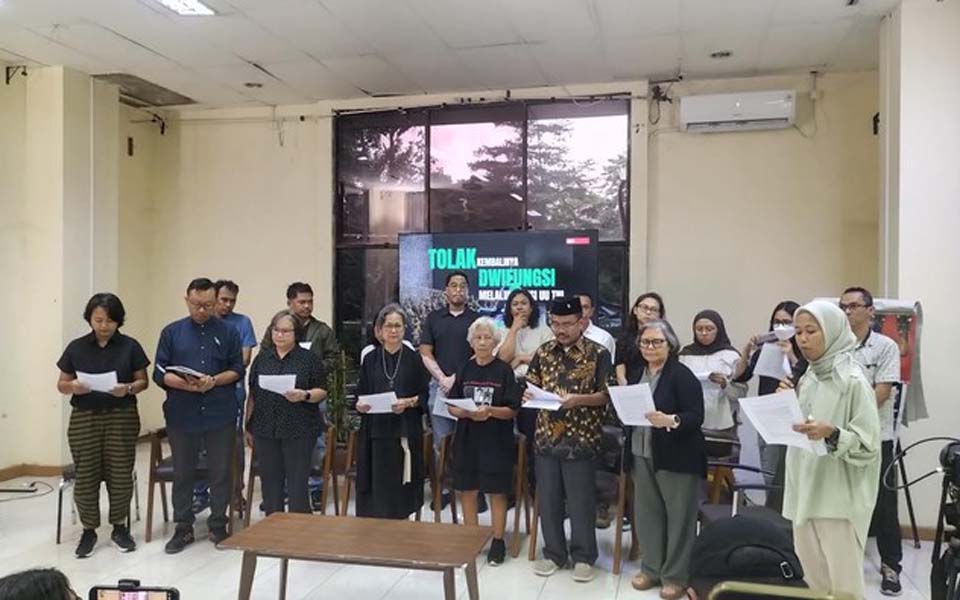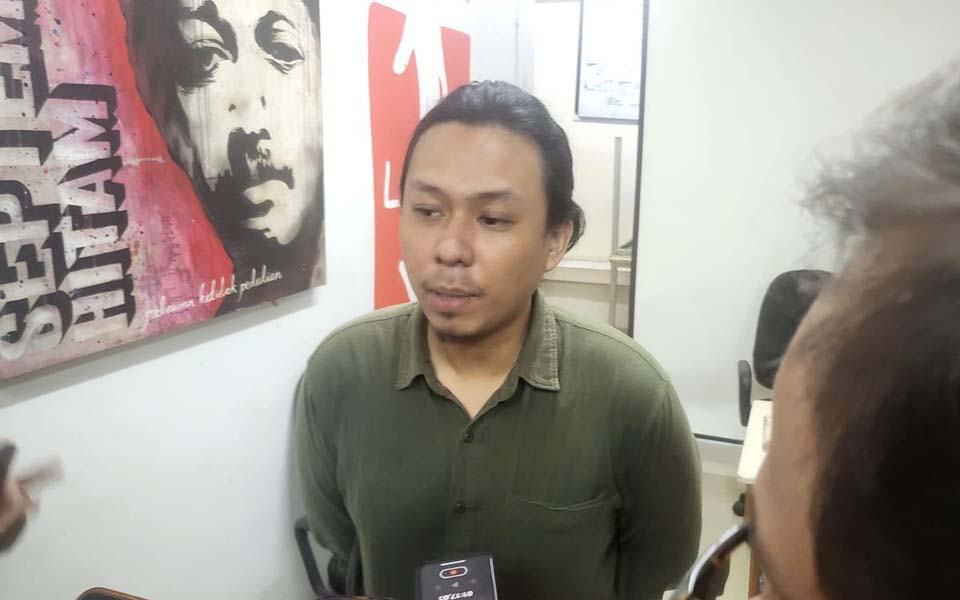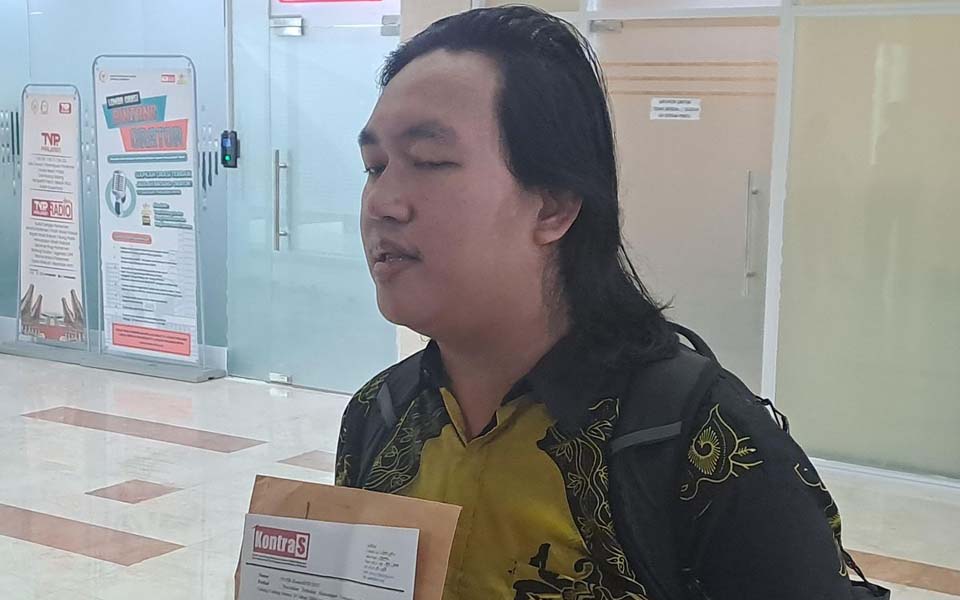Jakarta – As many as 290 farmer, fisherpeople, student, labour and environmental organisations have united to reject the Draft Omnibus Law on Job Creation – which is still being deliberated by the House of Representatives (DPR).
This opposition was voiced during a protest action commemorating National Farmers Day on Thursday September 24 in front of the DPR building in Jakarta, which was held in accordance with Covid-19 health protocols.
Action spokesperson and National Agrarian Reform Committee (KNPA) Secretary General Dewi Kartika said that the Omnibus Law is a part of global capitalism which only brings prosperity to businesspeople, employers, the political elite and land lords.
She does not believe the government’s claim that the Omnibus Law will create employment because the draft law largely benefits foreign investors who will be able to control land owned by the people.
“If the Draft Omnibus Law on Job Creation is enacted, then the earth, water and natural wealth contained within it, once again and forever will become part of international capitalist exploitation, neo-colonialism and neo-imperialism will continue to spread despair”, said Kartika in a press release received by CNN Indonesia on Thursday September 24.
Kartika also highlighted the disparity in land control in Indonesia. Quoting from National Statistics Agency (BPS) data, the land control inequality index has reached its highest level in Indonesia’s history.
As a comparison, 1 percent of businesspeople control 68 percent of the land. “Conversely, at least 15.8 million farming households only control around 0.5 hectares (BPS, 2018)”, she said.
In the palm oil plantation sector, Kartika said that there are 25 groups of companies which control 16.3 million hectares of land. 30.7 million hectares of forest are controlled by 500 companies and the mining operations now cover 37 million hectares.
The face of land control in cities is not very different. Kartika said that land in urban areas is controlled by property conglomerates which build business empire centres. Meanwhile the common people live on the sidelines in urban slums and riverside shacks.
“Land asset reserves and land control is very widespread and in the grip of capitalists which has given birth to agrarian inequality and acute structural poverty in urban areas”, she said.
According to Kartika, the Omnibus Law is not a solution to overcome the agrarian problems faced by workers, fisherpeople and the urban poor in Indonesia. The government however is determined to continue the deliberations on the law.
Kartika is aware that the government’s partisan campaign to push the draft law through until it can be enacted into law has indeed been quote skillful. Several myths about the Omnibus Law have emerged.
“The myth about economic recession which can only be addressed by capitalism and [neo-]liberalism [to exploit] agrarian resources through the Omnibus Law. The other myth is that the draft law will provide job opportunities and prosperity”, she said.
These myths, according to Kartika, could weaken the ordinary people’s position in the face of capitalism’s grip.
“Because the mutual cooperation which unites social, economic and political capital which the movement possesses is important to unit it into a new force, an Indonesian agrarian political movement”, she said.
Kartika continued saying that in rejecting the Omnibus Law, they are also calling for the 1960 Basic Agrarian Law to be properly implemented.
“[We] demand the enactment of the draft traditional community law, demand that the forestry law, the law on the protection and prevention of damage to forests and the coal and mineral mining law be revoked, and demand changes to the Agrarian Reform presidential decree for genuine agrarian reform”, she said. (tst/wis)
[Translated by James Balowski. The original title of the article was “290 Ormas Tani, Buruh, & Nelayan Tolak Omnibus Law Ciptaker”.]















